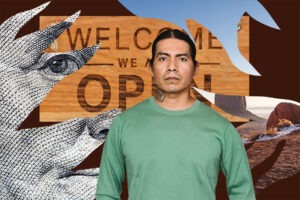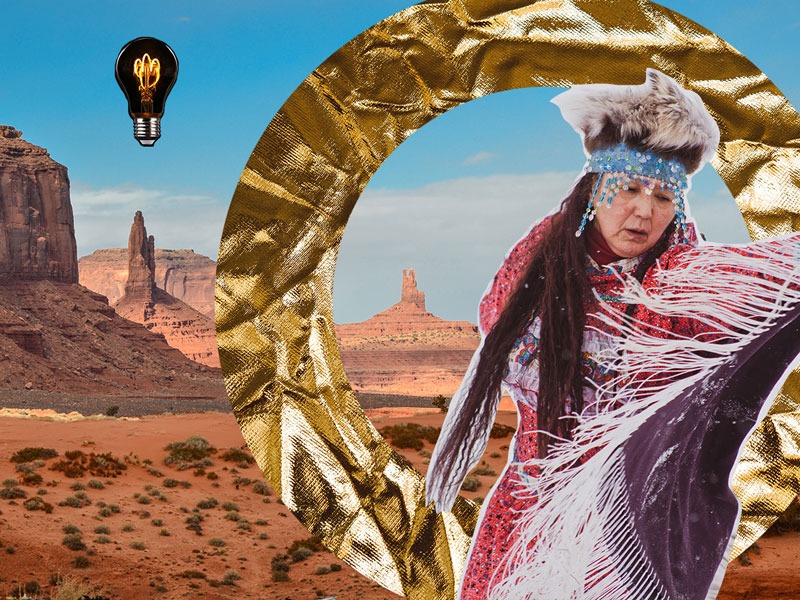October 5, 2015; Wall Street Journal
When people of color “choose” to be white, odds are it is difficult to pull off. For whites, it seems that there is a choice, a stylish choice for some, of opting to be a person of color, with the backup option of returning to being white. Atlanta-based journalist Errin Whack described one of the more recent occasions of this dynamic, Rachel Dolezal, the white president of the Spokane chapter of the NAACP who opted for a black identity, as the ”essence of white privilege.” The example of Dolezal is particularly representative, in that as a student at Howard University, she actually sued the school for discriminating against her because she was white prior to her appropriating a black identity in Spokane.
The latest example concerns Susan Taffe Reed, who was hired by Dartmouth College as the new director of its Native American Program. Taffe Reed had been president of the Eastern Delaware Nation, a nonprofit that purported to be a legitimate (albeit unrecognized) tribe of Delaware Indians. However, the nonprofit was founded by Thomas Taffe, Taffe Reed’s grandfather, who, although claiming to have been a descendent of Delaware Indians, was the grandson not of Native Americans from the Delaware tribe but of Irish immigrants
Sign up for our free newsletters
Subscribe to NPQ's newsletters to have our top stories delivered directly to your inbox.
By signing up, you agree to our privacy policy and terms of use, and to receive messages from NPQ and our partners.
As with the Spokane NAACP and Dolezal, Darmouth’s Native American program did not require that the director of the program be Native American. Experts have referred to Taffe Reed’s Eastern Delaware tribe as “pretendians.” Like Whack’s suggestion that Dolezal’s appropriation of a black identity was a “fake ID,” many observers consider Taffe Reed’s tribe as a fake tribe. In hiring Taffe Reed, Dartmouth basically equated Taffe Reed’s self-described roles in her nonprofit as the operations of a real Native American nation despite widespread criticism of Eastern Delaware’s provenance.
The issue at hand isn’t just Taffe Reed’s touting her role in a fake tribe, but her appropriation of an Indian identity. Like the criticism of Dolezal appropriating a black identity without the authentic experience of what it means to be black, critics referred to people like Taffe Reed as “culture vultures.” In any case, Taffe Reed is no longer running the Native American Program. According to Dartmouth, “the distraction” impeded her successful leadership of the unit, leaving unspoken her misrepresentation of her family nonprofit as a legitimate Native American tribe or herself as an authentic Native American.
Like the NAACP vis-à-vis blacks, Dartmouth has a special relationship with Native Americans. In its founding charter, Dartmouth was to educate Native American youth. To then hire a woman of doubtful Indian heritage with a claim to a fake tribe raises questions about the attentiveness to Native American authenticity in a program traditionally led by Native Americans at a school with a special mission obligation to provide for their education. Basic due diligence is necessary for the credibility of programs that serve and are traditionally led by persons of color. It’s time for the practice of cultural appropriation to end.—Rick Cohen













